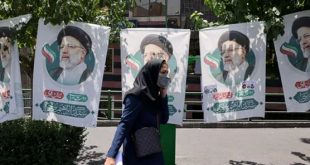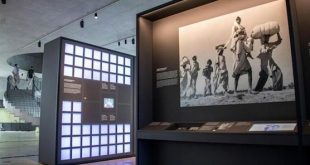The military spokesman said ceasefire violations at the Line of Control (LoC) had risen and India was deliberately targeting civilians. "Ceasefire violations have risen during the last 10 years.”
"The government took the initiative to make the Kartarpur corridor which was projected in a negative light in the Indian media.”
Speaking on Khyber Pakhtunkhwa, the DG ISPR said Pakistan’s war on terror had been fought mostly in areas of this province. Showing a graph of terrorist incidents in the country DG ISPR said, "The average of terrorist incidents has fallen since 2013. The number of civilian casualties has also decreased.”
On Balochistan, Major General Ghafoor said this province made 43 per cent of the country with only 6 per cent of the population. "We have changed our deployment according to the geography of the province. This readjustment is focused on the socio-economic projects in the province.”
He said terrorist incidents in the province had fallen and 18 had taken place in 2018. "In the last three years over 2,000 Ferraris had surrendered in the province which was a good step.”
The military spokesman said the law and order situation in Karachi had improved in the last few years. "In 2018 barring the last two incidents, the security situation has improved drastically. Credit goes to the law enforcement agencies.”
Terming Karachi as the country’s economic engine, the DG ISPR said the situation in the city would further improve.
The military spokesman said 44 major operations had taken place under Radd-ul-Fasaad in the country. "Our aim or de-weaponisation is not where it needs to be. We will work with the government on this.”
Stating that no war can end with just operations, Major General Bajwa stressed the need for social-economic development. "Enduring peace in FATA will come through socio-economic development.”
The number of polio cases in the country have also decreased, and the DG ISPR hope a day would come when Pakistan would be polio-free.
On the PTM, Major General Ghafoor said they had three demands. The first demand was over checkposts. "Pakistan Army has decreased its check-posts in KP/FATA with 331. When we believe that there is no need for even one check-post we will remove them.”
He added that if there could be surety from Afghanistan, Pakistan could bring its troops back. "We cannot do this because of the threat…The fencing will be completed by next year and this will lead to a decrease in cross-border attacks.”
The second demand of the PTM was to clear mines, which DG ISPR said was being done. "Our troops have suffered casualties due to these mines and unexploded bombs. One day we will clear the area from mines.”
He said the third demand of the PTM was over missing persons. "Overall cases from 2010-11 were 7,000 with the Supreme Court hearing it on a daily basis. From these 7,000 cases over 4,000 cases had been settled. 3,000 plus cases are under process with 2,000 cases with the commission.”
The DG ISPR informed reporters that it could not be proven that those missing were not part of the TTP or any other faction.
"We want this process to move further and for it to be resolved.”
The Pakistan Amry he said had lightly engaged with the PTM. "These brothers of us have lived in the war zone. They have not committed violence. I request them that their demands were being dealt with by the government and army.”
He stressed that the PTM was headed in a direction where they might cross the line and the state is forced to use force.
Major General Ghafoor also spoke on the Pakistan Army’s budget and accountability.
"We are a disciplined force. There is a change of command and rules and regulations. There is a branch which is tasked with discipline and accountability.”
He added despite the measures in place if rules were violated punishment was given. "In 2017-18 almost 400 Pakistan officers have been given punishments which range from a warning to dismissal and even jail.”
He also said officers faced stricter punishments than soldiers.
The military spokesman said lessons should be learnt from the past, adding that the country had external and internal faultlines.
"Our internal faultlines were exploited by our enemies.”
The military spokesman said Pakistan was standing at a watershed where the country could either head in a positive direction or not.
"Media is the fourth pillar of the state and you [journalists] are the opinion makers. If just for six months you create positive public awareness about Pakistan both locally and internationally, see where the country reaches.”
He called on everyone to play their role for a more prosperous Pakistan.
Responding to Indian army chief’s statement of Pakistan becoming a secular state before talks are held, Dg ISPR said, "They do not need to tell us what kind of country we should be. Are they [India] secular. Look what is happening to the 200 Muslims there.”
On the President Trump letter, DG ISPR said Pakistan had always said there was a need for a political reconciliation in Afghanistan. "Pakistan is every step to make this reconciliation successful. This political reconciliation must succeed. We hope the US leaves Aghnaitsna as a friend of the region, not as a failure.”
 M92 TV Pakistan, Pakistan news, Urdu, Urdu news, Media 92 tv, Latest news ,Top story
M92 TV Pakistan, Pakistan news, Urdu, Urdu news, Media 92 tv, Latest news ,Top story




